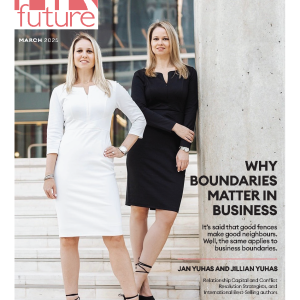Business leaders around the world – some more grudgingly than others – are probably tolerating in-office Valentine’s Day celebrations of some sort.
To “keep the people happy” they’ve agreed to allow everybody to wear red to work, to have a little Valentine’s Day tea celebration and such like things.
Old school, militaristic managers will try hard not to show their irritation at this interruption to work, and will lay low in their offices, hoping to avoid what to them is just a lot of nonsense.
If you’re one of those leaders who thinks all this talk about love is a waste of time and that employees should get on with what they’re paid to do, think again. You may be missing the significance of one of the most powerful leadership tools around.
The leadership tool I’m talking about is … love.
Yes, you read that correctly – love is the most underrated, most neglected, yet most powerful, leadership tool that you could ever apply in your company. The love I am talking about is not the touchy feely emotion-based, romantic “Valentine’s Day” love that often clouds one’s judgement, causing one to make subjective and ill-conceived decisions. The love I am speaking of is a “from the waist up” kind of love – a love that accepts people for who and what they are, no matter their appearance, dress, religious beliefs or cultural background.
Leaders who display a genuine love for people enjoy exceptional influence in the lives of the people they lead. That’s because those people feel an unconditional acceptance of who and what they are – and that makes them really want to please the leader they report to.
Being a loving leader doesn’t mean you’re a weak leader. On the contrary, loving leaders will lead by example and expect only the best from their teams. Loving leaders will take courageous decisions that they believe will be in the best interests of everybody – clients, shareholders, employees and the community in which they operate.
Shoddy workmanship or a lack of achievement will therefore not be tolerated. You can unconditionally accept a person for who and what they are, but still hold that person accountable for their performance. Such a love is able to separate the person from the performance.
A loving leader will hold themselves accountable to the people they lead. This gives them the moral high ground so they can hold their people accountable because they are leading on a “do as I do” basis and not on a “do as I say” basis. Results under loving leadership therefore usually soar because, when people are loved and feel loved, they respond by loving back and want to give not only of their best but of even more than their best. And they do this not because they have to but because they want to.
Apart from this, love is the next trend in customer service. Don’t believe it? Consider this …
When Henry Ford started mass producing motor cars, making them available to the general public, his attitude was, “You can have any colour you want, so long as it’s black.” This attitude reflected the view that the customer was expected to take whatever was offered to them.
Then came customer service where the need to be of service to the customer was emphasised. So seriously was this taken that companies – still to this day – have Customer Service Managers.
After customer services came customer care, where just being of service to your customer was not enough. You now had to show that you actually cared for your customer. If you didn’t care for your customer, they would simply move their support to one of your competitors who did show them that they cared.
Have you seen where this is going? We’ve come from a “take it or leave it” policy to a service policy to a care policy. What’s next? Customer love. If you don’t show your customer that you love supplying them and (like a loving person) have their best interests at heart, you will lose your customers.
Of course, leaders can’t simply love their customers and treat their employees like dirt. That’s just unsustainable, apart from many other things.
So, if you want to lead your business and your people into a prosperous future, start loving everybody. Yes, I know you may find that difficult when even your life partner tells you that you’re not very loving but, if you want to make it into the future of work, you’re going to have to start learning some new skills and love is a good place to start!
Alan Hosking is the publisher of HR Future magazine, www.hrfuture.net, @HRFuturemag, and assists executives to prevent, reverse and delay ageing, and achieve self-mastery.
























